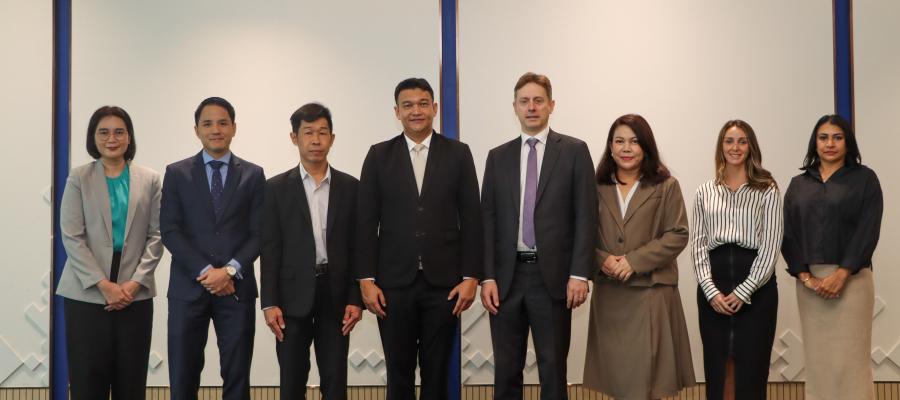If you are interested in partnering with us, please get in touch. Using P4I's flexible, innovative tools and diverse global expertise, we are confident we can design a response that is tailored to your needs.


Across Southeast Asia, transport planners are grappling with a difficult paradox: it’s often easier to get funding to rebuild after a disaster than to build infrastructure that won’t break in the first place. The problem isn’t a lack of will, but a lack of tools. For ministries and local agencies alike, the challenge is how to quantify long-term resilience in ways that align with budget processes, institutional incentives, and investment logic.
On 7 July, 2025, Thailand took a practical step toward bridging that gap.
In a technical workshop hosted in Bangkok, officials from Thailand’s Ministry of Transport and the Office of Transport and Traffic Policy and Planning (OTP) came together with experts from the Queensland Reconstruction Authority (QRA) to explore how resilience can be embedded into infrastructure decision-making as a measurable, fundable objective.
The workshop, supported through the Australian Government’s Partnerships for Infrastructure (P4I) initiative, focused on one critical tool: the Sustainable Asset Valuation (SAVi) model. Originally developed to capture the social, environmental, and economic value of resilient infrastructure in Queensland, SAVi is now being adapted for use in Thailand. Participants explored how the tool could support business cases for climate-resilient roads, model avoided losses from future disasters, and better align project design with Thailand’s development and disaster management goals.
Queensland’s experience offered a real-world model. QRA shared how SAVi has been used to justify long-term investment in disaster resilience that demonstrates concrete cost savings, avoided disruptions, and social co-benefits instead of relying on moral arguments, In the Queensland context, these valuations have helped unlock betterment funding, enable cross-agency planning, and integrate resilience into standard budget processes.
For Thai officials, adapting this approach requires translating the logic into local conditions. That means accounting for regional vulnerabilities — such as flood-prone tunnels, landslide-affected roads, and exposed rail corridors — as well as understanding how annual budget cycles and institutional mandates can limit flexibility. Participants discussed what it would take to pilot the tool in Chaiyaphum province, where recurring floods have tested the resilience of road and rail infrastructure and highlighted the limits of short-term recovery funding.
The workshop forms part of a longer-term collaboration between Australia and Thailand under P4I, focused on building safer, more inclusive, and climate-resilient infrastructure. As climate risks grow more severe, the ability to invest before disaster strikes — not just after — will define the resilience of Southeast Asia’s transport systems. And that starts with better planning, better coordination, and better maths.
If you are interested in partnering with us, please get in touch. Using P4I's flexible, innovative tools and diverse global expertise, we are confident we can design a response that is tailored to your needs.
